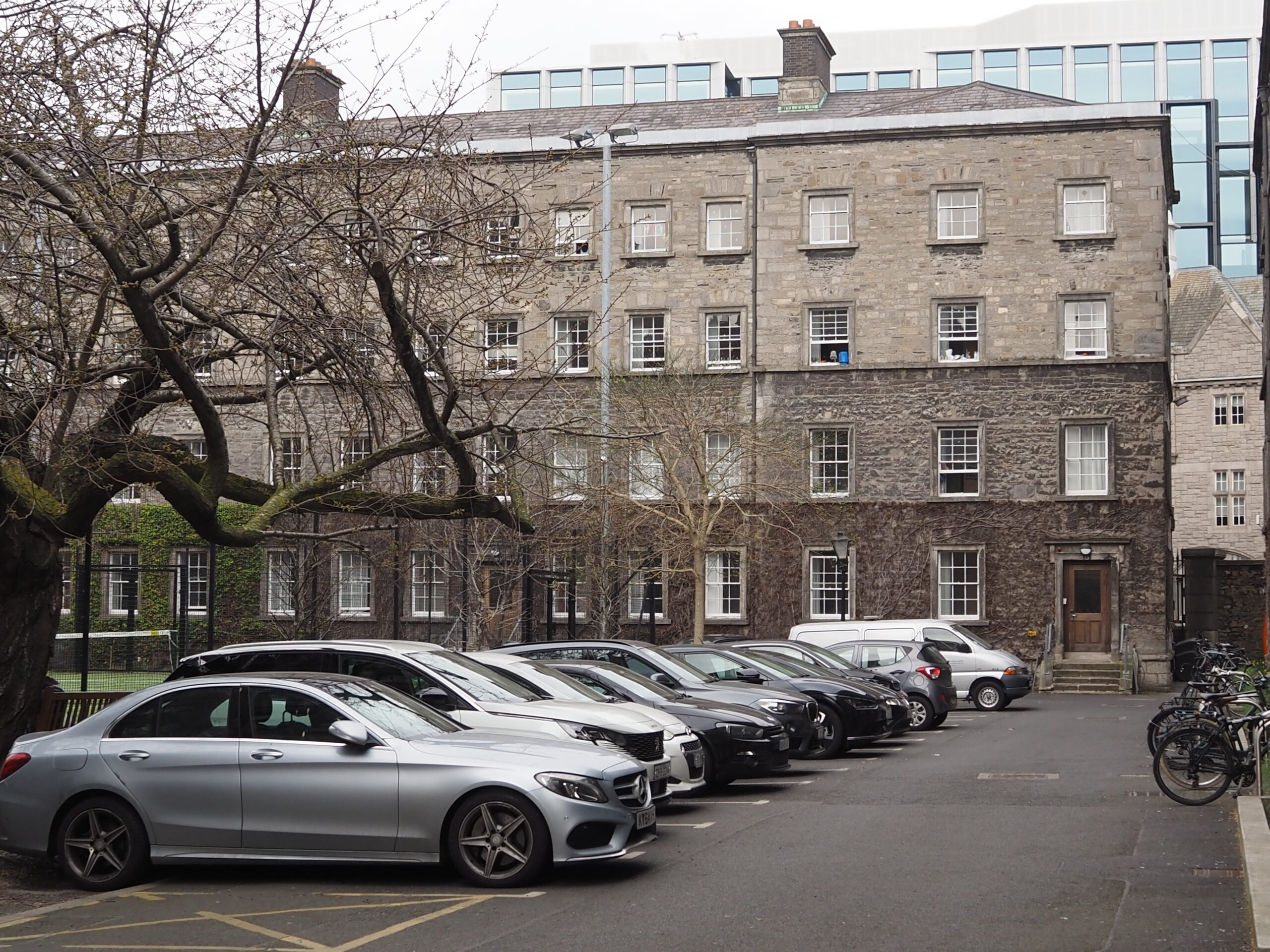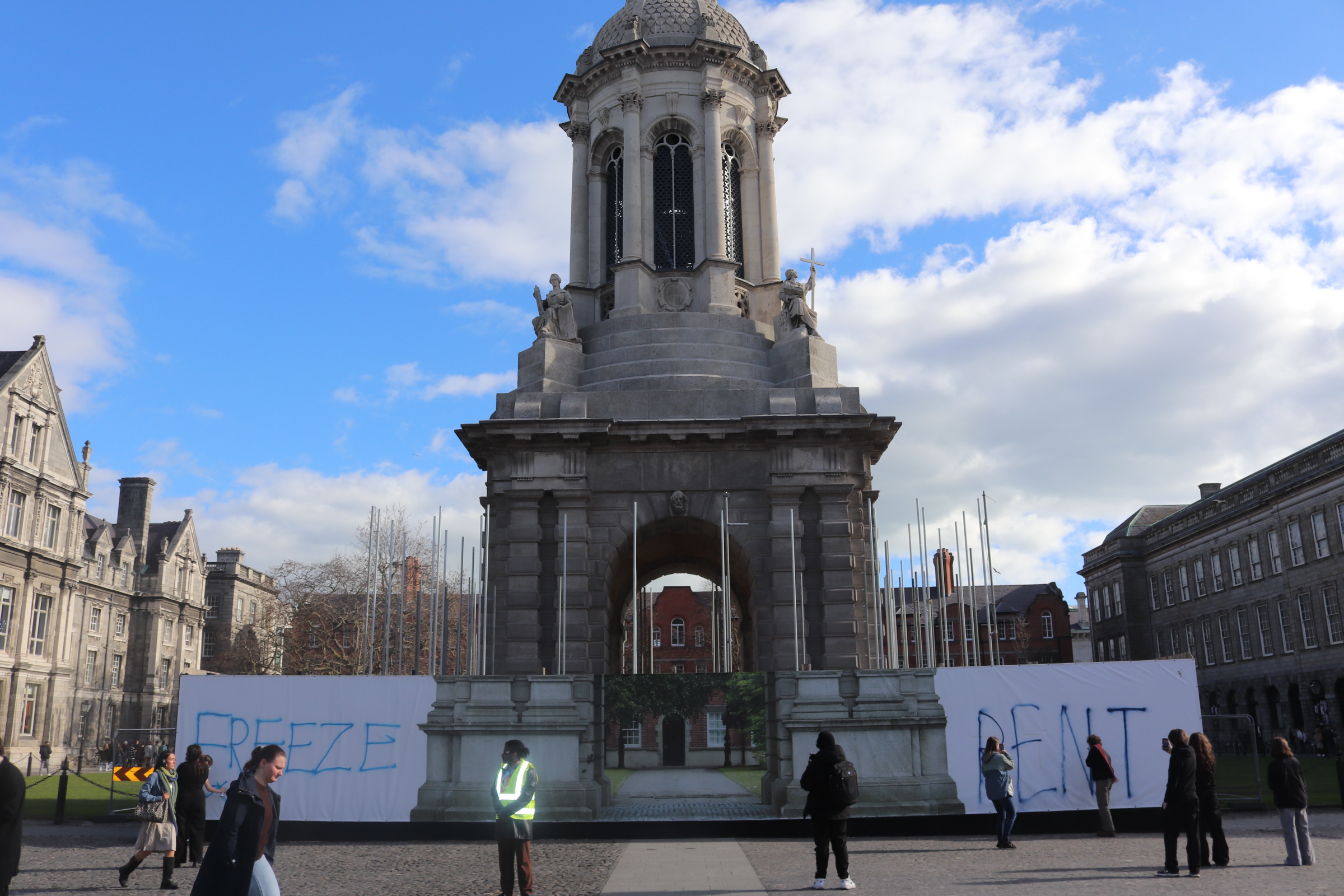In an email to all students on January 9th, 2024, the EC confirmed the following: “In line with the motion’s requirements, following consultation with the College’s Capitations Committee, it was agreed that a levy referendum would take place on whether students support a levy to create the Gaeilge Initiative.”
The EC also confirmed that if the referendum passes (any constitutional change needs a simple majority, of 50%, to pass) “the proposed constitutional changes will take effect at the end of Trinity Term”.
At 10am on Thursday 25th January, 2024, the campaign period began for the referendum on the Gaeilge Initiative. The referendum question is:
Do you support a student levy of €4 to create the Gaeilge Initiative: a dedicated fund for Irish language initiatives for the CSC, TCDSU, Trinity Sports Union, and Trinity Publications, and therein, the creation of a full time TCDSU Oifigeach na Gaeilge?
Voting on the referendum, which will be conducted by paper balloting, opens at 10am on Tuesday 30th January, 2024 and closes at 6pm Thursday 1st February, 2024.
The student levy is currently €199.75 for undergraduates, doctorates and undergraduate and postgraduate Certificate/Diploma students. For postgraduates on a taught programme, the student levy ranges from €233.50 to €301.00 depending on part-time or full-time student status. Visiting students currently pay €166.00.
The referendum has come about as a result of the passing, by a two-thirds majority, of the motion to establish a Sabbatical Irish Language Officer and Long-Term Irish Policy, at the third student council of this academic year on November 7th, 2023.
At that student council, TCD’s full-time Irish Language Officer, Áine Ní Shúilleabháin, spoke in favour of the motion. She encouraged students to recognise the importance of the Irish language in colleges, saying that establishing a sabbatical position and long-term Irish language policy would “help the development of Irish in Trinity and other colleges”.
TCDSU Irish Language Officer Pádraig Mac Brádaigh spoke in favour of the motion, highlighting the “historical opportunity” of such a move. “Trinity has a colonial history, and voting for this referendum to happen shows big social progress in Irish society for the language,” he said.
In a further statement to The University Times, Mac Brádaigh emphasised the challenges facing the Irish language today: “Tá a lán dúshlán roimh an teanga sa lá atá inniu ann cé go n-éiríonn an reachtaíocht teanga níos fearr i gcónaí. Mhionlaigh na céadta bliain de bheartas impiriúil Shasana an teanga go pointe ina raibh náire ar dhaoine í a labhairt go poiblí chun gnáthrudaí a dhéanamh ar nós dul go dtí an siopa.”
“There are many challenges that face the language today, though language legislation continues to improve. Centuries of British imperial policy minoritised the language to a point where speaking it in general society to do things like go to the shop became seen as embarrassing and backwards.”
“Tá píosaí den mheon sin ann nach fiú Gaeilge a labhairt, gur teanga gan mhaith í, mar dhea. Cumtar leithscéalta seafóideacha go minic chun dul ina coinne agus meas bunúsach a dhiúltú do Ghaeilgeoirí i bhfoirm seirbhísí.”
“Part of that mentality still exists, that it’s not worth speaking Irish or that it’s somehow a useless language. Excuses are often given to go against the language and to deny Irish speakers basic respect in the form of services.”
He also highlighted his issues with the government response: “Tá Fine Gael agus Fianna Fáil tar éis na blianta fada a chaitheamh ag déanamh neamhaird ar an éigeandáil sa Ghaeltacht agus ar éilimh phobal na Gaeilge. Tá sé in am d’athrú ó bhonn ó thaobh na Gaeilge de agus an dóigh a gcaitear léi ar gach leibhéal sa tsochaí. Áit ar bith a bhfuil Béarla, caithfidh Gaeilge a bheith ann fosta.”
“Fine Gael and Fianna Fáil have spent decades ignoring the crisis in the Gaeltacht and the demands of the Irish language community. It’s time for a paradigm shift when it comes to Irish and how it’s treated on every level of society. Anywhere there is English, Irish must also be there.”
When speaking about the future, Mac Brádaigh praised the work of those seeking to promote the Irish language: “Déanaim mo sheacht ndícheall a bheith dearfach faoi thodhchaí na teanga in ainneoin na ndeacrachtaí a bhíonn romhainn mar phobal na Gaeilge ár saolta a mhaireachtáil trínár dteanga féin inár dtír féin.”
“I do my very best to be positive about the future of the language despite the difficulties the Irish language community faces just to live our lives through our own language in our own country.”
“Tá na mílte gníomhaí mar chuid den ghluaiseacht a dhéanann obair na gcapall gach lá chun an Ghaeilge a fhás chomh mór agus is féidir léi a bheith agus táimse go huile is go hiomlán tiomanta chuige sin i mo shaol pearsanta féin. Tá neart fós le teacht maidir le cearta teanga agus an ghluaiseacht, ach creidim go láidir go n-éireoidh linn.”
“Thousands of activists in the movement move mountains every day to grow the Irish language as big as it can be and I am completely driven toward that goal in my own personal life. There’s a lot yet to come in terms of language rights and the movement, but I strongly believe that we will succeed.”







